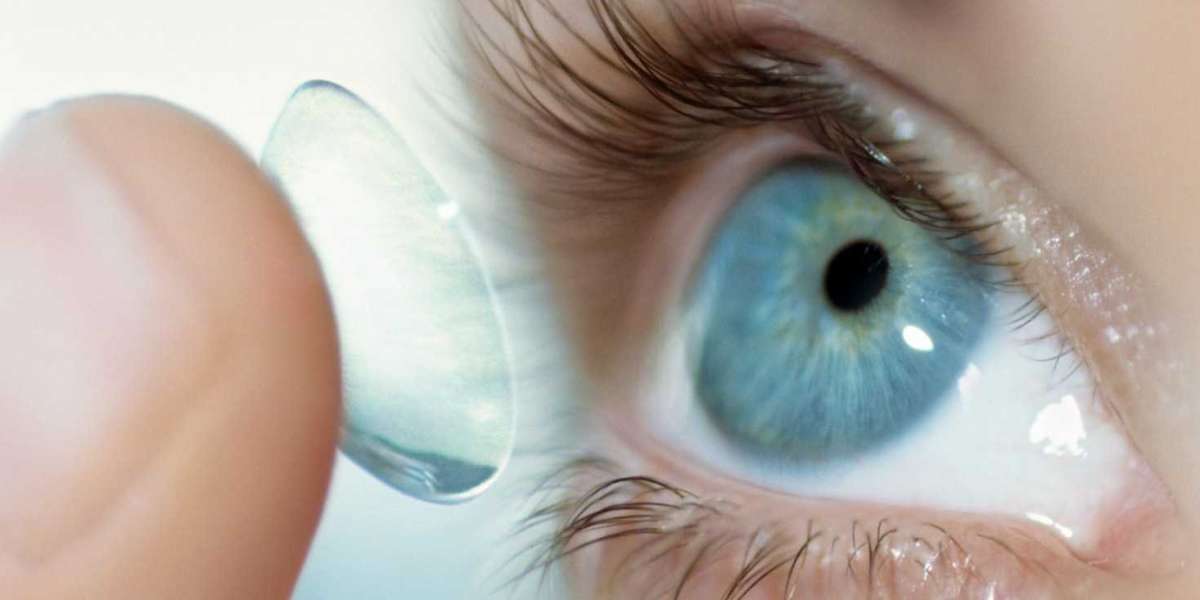Contact Lens Materials: A Breakdown for Informed Choices
Contact lenses are a popular vision correction method, but with various materials available, choosing the right one can be confusing. Let's delve into the most common contact lens materials to understand their market share, advantages, disadvantages, and pricing trends.
- What are the Most Popular Contact Lens Materials?
The contact lens market is dominated by soft lenses, which can be further broken down by material type:
- Hydrogel (Methacrylate): This is the traditional soft lens material, known for its affordability and comfort. However, hydrogel lenses have lower oxygen permeability, which can limit wear time and eye health. Their market share is declining but they are still a popular choice for occasional wearers.
- Silicone Hydrogel (SiHy): This is the current market leader, accounting for over 88% of the soft lens market share. SiHy lenses offer superior oxygen permeability, allowing for longer wear times and healthier eyes. They are a good choice for daily wearers and those with dry eyes.
- Gas-Permeable Lenses: The Breathable Alternative
Gas-permeable (GP) lenses are known for their excellent oxygen permeability, making them ideal for people with severe dry eyes or corneal conditions. However, GP lenses are more rigid and take longer to adjust to compared to soft lenses. Their market share is smaller due to comfort considerations.
- What are the Advantages and Disadvantages of Each Material?
Comparison of the most common materials:
- How Do Prices Differ Between Materials?
Silicone hydrogel lenses are generally more expensive than hydrogel lenses due to their advanced material properties. Gas-permeable lenses can also be more expensive due to their specialized fitting process. However, the exact pricing depends on factors like lens brand, prescription complexity, and replacement schedule (daily vs. monthly).
- What Exciting Innovations Are on the Horizon?
The contact lens market is constantly evolving. Here are some top trends:
- Smart Lenses: These lenses are being developed to integrate biosensors that can monitor eye health or even display information.
- Biocompatible Materials: Researchers are exploring new materials that mimic the natural properties of the cornea for improved comfort and long-term wear.
- Drug Delivery Lenses: Lenses capable of delivering medication directly to the eye are being investigated for treating glaucoma and other conditions.
Top Key Leaders and Innovations:
The contact lens market is a dynamic landscape with several major players:
- Essilor International SA: A global leader in ophthalmic optics, Essilor offers a wide range of contact lens brands, including Acuvue (known for its silicone hydrogel lenses) and Air Optix (known for its advanced lens materials for increased comfort).
- Alcon Vision LLC: This company boasts innovative products like PRECISION1, a daily disposable silicone hydrogel lens designed for astigmatism, providing excellent fit and vision correction.
- Abbott Medical Optics, Inc. (AMO): AMO is a major player with popular brands like Acuvue Oasys (known for its advanced HydraMax technology for long-lasting comfort) and Dailies Total1 (a water gradient lens material for exceptional comfort).
- CooperVision, Inc.: A leading manufacturer, CooperVision offers various silicone hydrogel lenses like Clariti 1-Day (known for its excellent clarity and breathability) and MyDay (known for its smooth surface and comfortable wear).
- Hoya Corporation: This Japanese company offers a range of contact lenses under the brand name Sensity, known for their innovative light-filtering technology to help reduce eye strain.
- SynergEyes, Inc.: A specialty contact lens company, SynergEyes focuses on unique lenses like Duette (a hybrid lens for astigmatism) and UltraFlex (a multifocal lens for presbyopia).
- X-Cel Specialty Contacts: This company specializes in fitting complex corneal conditions with customized rigid gas permeable lenses.
- Johnson Johnson Vision Care, Inc.: A major player with popular brands like Acuvue Vita (known for its high water content for dry eyes) and Acuvue Abac (a silicone hydrogel lens for all-day comfort).
- Medennium: This company offers a range of contact lenses under the Menicon brand, known for their unique MeniFORM surface treatment for improved wettability and comfort.
- Seed Co., Ltd.: A prominent player in Asia, Seed offers various contact lens materials, including silicone hydrogel and high-Dk lenses for increased oxygen permeability.
- STAAR Surgical Company: While not solely focused on contact lenses, STAAR Surgical offers implantable contact lenses (ICLs) as an alternative vision correction option.
For more information visit at MarketResearchFuture
Other Trending Reports
Actinic Keratosis Treatment Market
Non-Invasive Prenatal Testing (NIPT) Market
Cardiac Resynchronization Therapy Market








